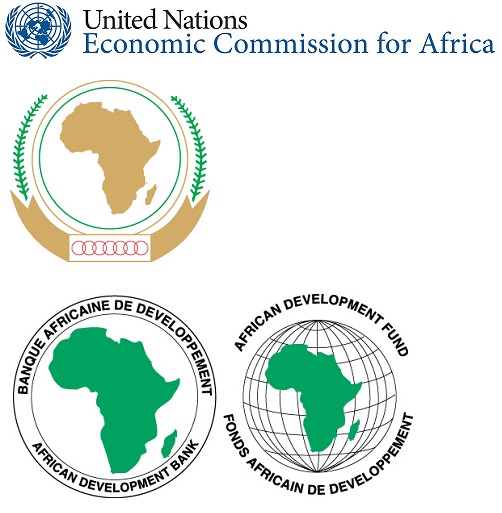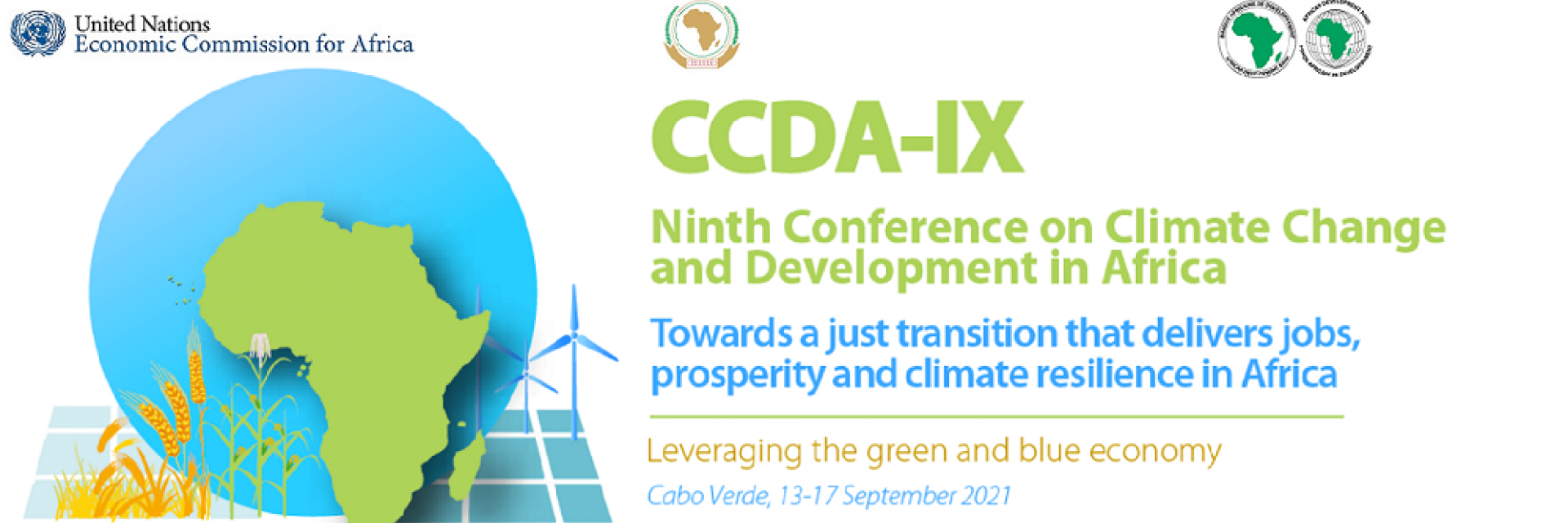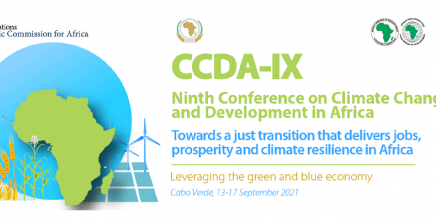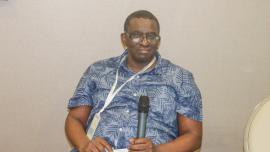Introduction
Climate change, environmental degradation and biodiversity loss have informed recent efforts to reconceptualise the relationship between development and sustainability. This is reflected in the global Agenda 2030, the Samoa Pathway and Africa’s Agenda 2063 which seek to achieve human wellbeing while at the same time ensuring environmental and ecosystem health. Climate change has emerged as the most pressing and urgent challenge for the achievement of the Sustainable Development Goals (SDG) and the ideals of Agenda 2063. Ambitious action on climate is required to keep the warming of the planet as far below 2 degrees as possible in order to ensure a future for humanity. Such action, undergirded by the Paris Agreement, seeks to transition the global economy from fossil fuel dependency to zero carbon emissions. Such a transition is possible, but requires social, sectoral and economic transformation on a scale and within a time frame faster than any in human history. The terms of this transformation, including the requisite timelines, are heavily contested. This ‘Race to Zero’ has set the overarching objective of mobilizing all actors towards net zero emissions by 2050 at the latest. The Climate Action Pathways define the sector- specific plans that will unlock the systems transformations required to achieve this zero carbon future.
Africa is often described as the continent most at risk to the negative effects of climate change, both because of the expected change itself and because of the perceived lack of capacity of Africans and their governments to adapt. Increasingly, climate change is seen as disadvantaging Africa to the extent that the continent may have to forego the exploitation of its carbon fossil assets in order to leapfrog to carbon neutrality in its development paradigms . This is particularly pertinent as there is a linear link between carbon fossil fuel use and Development. Those economies that have contributed the most to historical greenhouse gas concentrations also have the highest GDP, while those that burn the least also have the lowest GDP . Even within the African continent itself, the more developed economies also have significantly higher energy access than the poorer economies. The Loss and Damage mechanism is critical for Africa and Small Island Developing States (SIDS).
Tracks
While NDC, Just Transition, Resilience and Covid-19 will be the cross-cutting themes of CCDA-IX, there will be parallel tracks organized by strategic sectors related to climate change. Since this is the first time that this Conference is hosted in an island nation, the SIDS specificities will be also mainstreamed during the Conference as a special interest cross-cutting theme.
The tracks are:
- Blue economy, oceans and water
- Health and climate
- Energy, industry and transport
- Food and agriculture
- Nature based solutions, land use and environment
- Finance
The discussions during the tracks sessions will contribute to the cross-cutting themes and its conclusions will be incorporated in the final declaration of CCDA-IX. This call-to-action will be widely disseminated and taken to the climate global high-level events.
In order to provide a platform to confront these issues and formulate actionable recommendations, ClimDev-Africa partners consisting of Africa Union Commission (AUC), African Development Bank (AfDB), United Nations Economic Commission for Africa (UNECA) and the Pan-African Climate Justice Alliance (PACJA), in collaboration with the Government of Cabo Verde, are convening the 9th Climate Change and Development in Africa Conference (CCDA-IX) in Sal Island, Cabo Verde from 31st May to 4th June 2021.
Objectives
CCDA-IX aims to launch a continent wide debate on what a just transition for Africa should look like, how the continent can develop appropriate frameworks to prepare for the just transition. Specifically, the conference objectives will include:
- Increasing ambition in the NDCs, looking specifically at financing of the NDCs, the blue economy and related issues.
- Deliberate on how to model the costs of the transition, how to finance the transition, and the opportunities arising from the just transitions across the globe, with a view to starting a process of preparing the continent to reap the rewards of such a transition.
- Taking stock of numerous challenges and opportunities engendered by the Covid-19 pandemic, and how they can be transformed into actionable climate solutions for Africa and the SIDS.
Format
The ninth Conference on Climate Change and Development in Africa will employ three approaches over three days in reaching out to and convening the wide range of constituencies and actors engaged in climate change and development in Africa. By uniting different platforms, parallel sessions for dialogue and interaction, the Conference will facilitate and enrich the sharing of lessons, key research findings, outreach and policy uptake, as well as stimulate investment.
In addition, there will be pre-events and post-events organized by specific stakeholders, as well as an exhibition fair to show innovations and initiatives related to the themes of the CCDA-IX. As has been the tradition of previous conferences, these events will be self-organized forums for various partners and stakeholders to discuss topics that are in line with the theme of the Conference.
Due to limitations caused by the Covid-19 pandemic, this edition will use a hybrid model of participation, including virtual and in-person speakers and delegates, as a way to overcome those limitations and enlarge the outreach. All measures will be taken to guarantee the safe stay in Cabo Verde for all participants that decide to travel. The use of masks will be compulsory, while social distancing will be kept and health and hygiene facilities will be available around the clock. Participants will be updated when registering on the requirements to travel to Cabo Verde.
Participants
CCDA-IX will gather a wide range of stakeholders and constituencies, including the following:
- Policymakers and technocrats, including African parliamentarians and representatives of the ministries of finance and economic planning of various African countries, the African Group of Negotiators on climate change;
- Research institutions and scientists: Climate Research for Development in Africa and academia, including universities, regional climate centres and research centres;
- Civil society organizations, including women groups, farmers, youth, indigenous, handicapped, IDP and refugee groups;
- Local governments, cities and regions’ decision makers
- Development partners;
- International organizations;
- The private sector.
Partners
United Nations Economic Commission for Africa (UNECA) , Africa Union Commission (AUC), and African Development Bank (AfDB)





